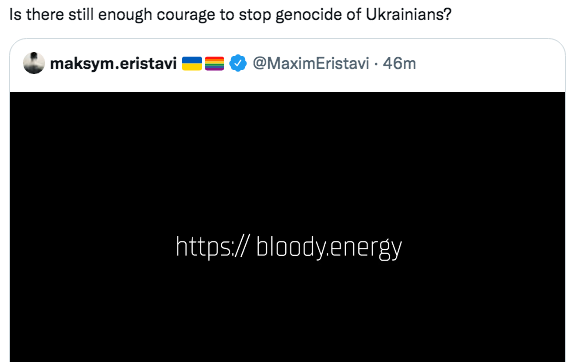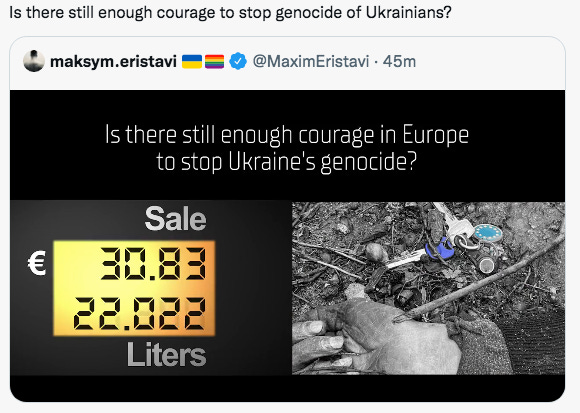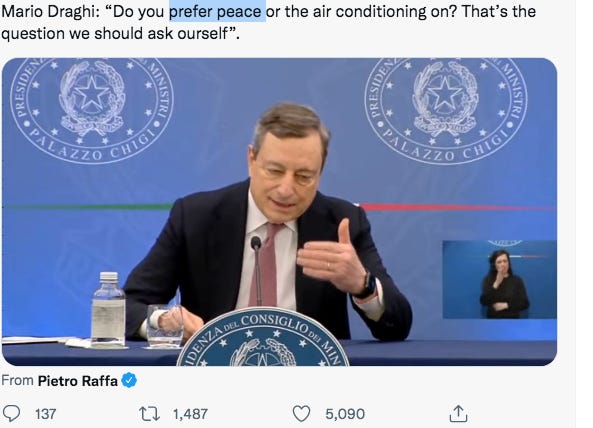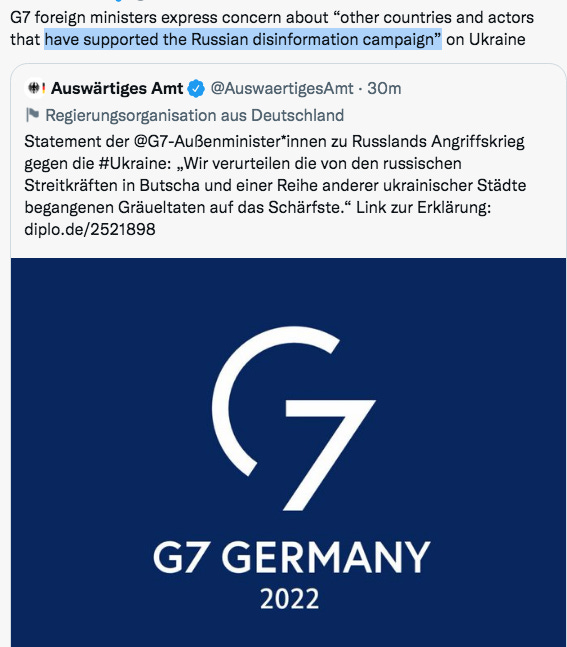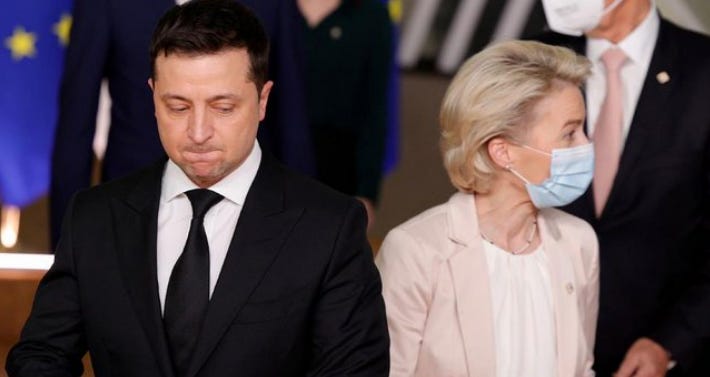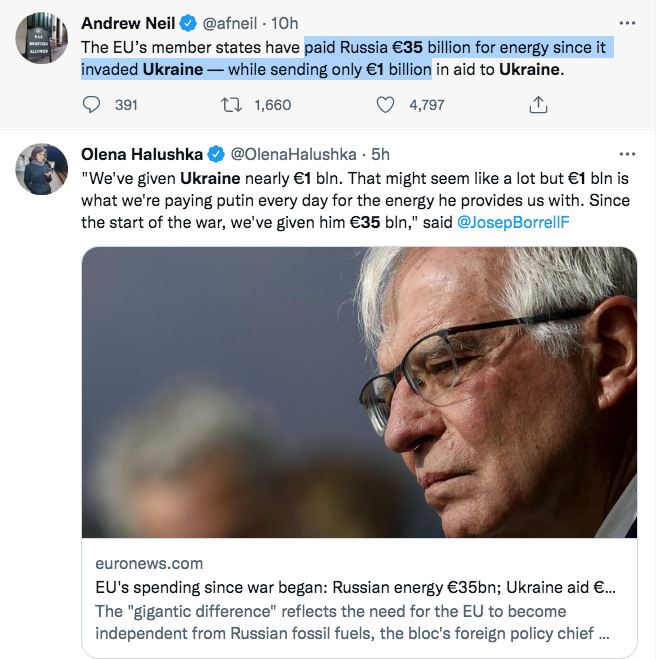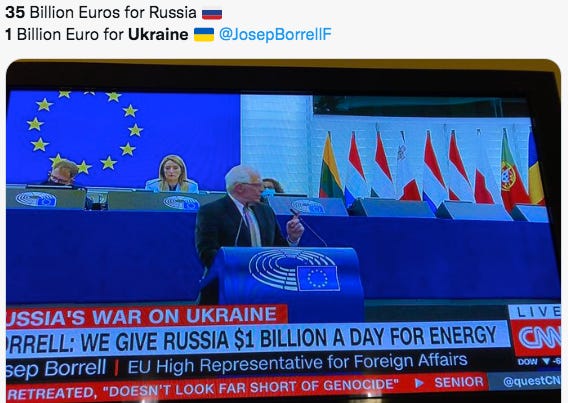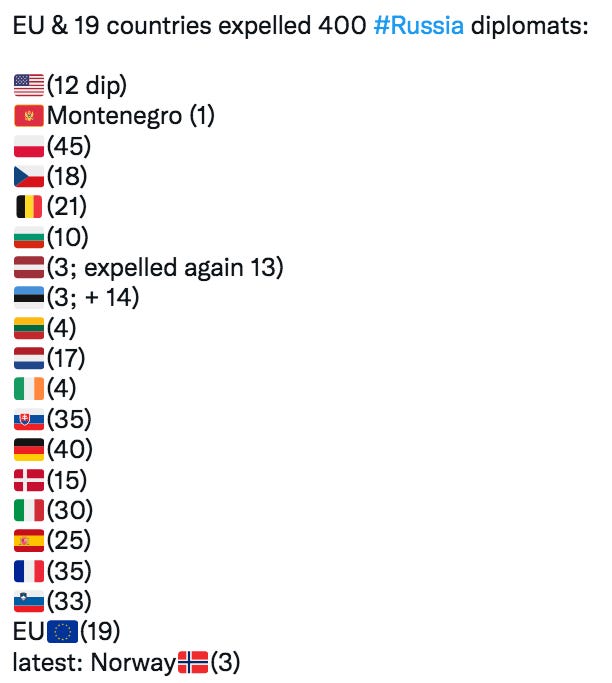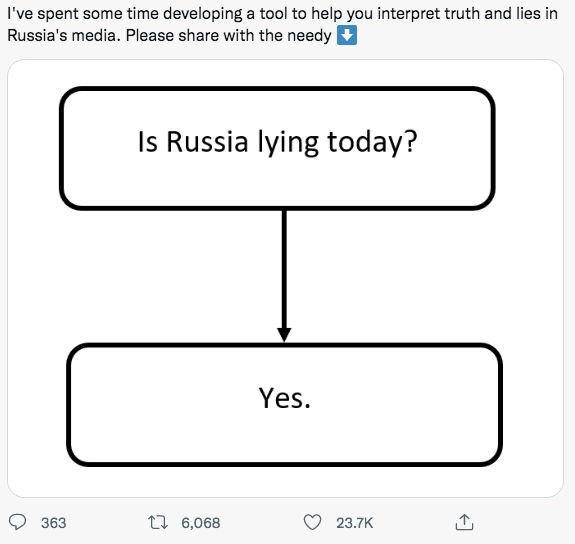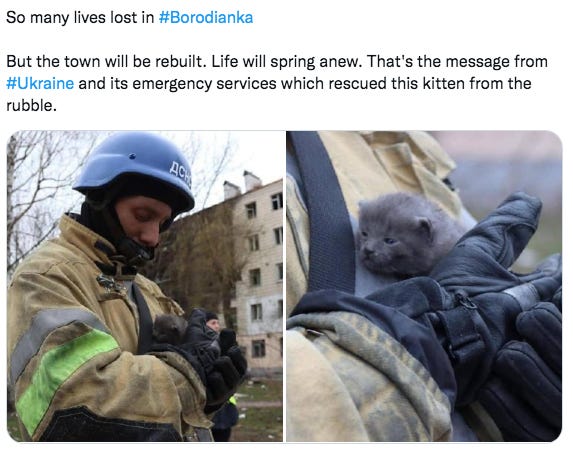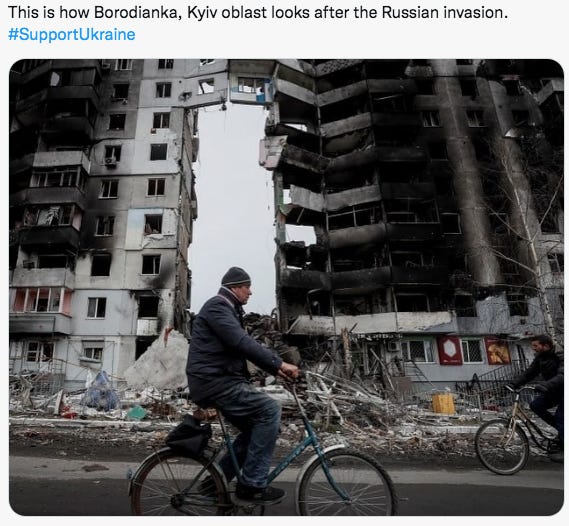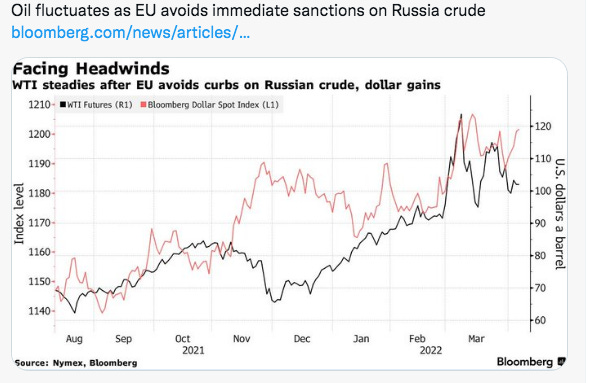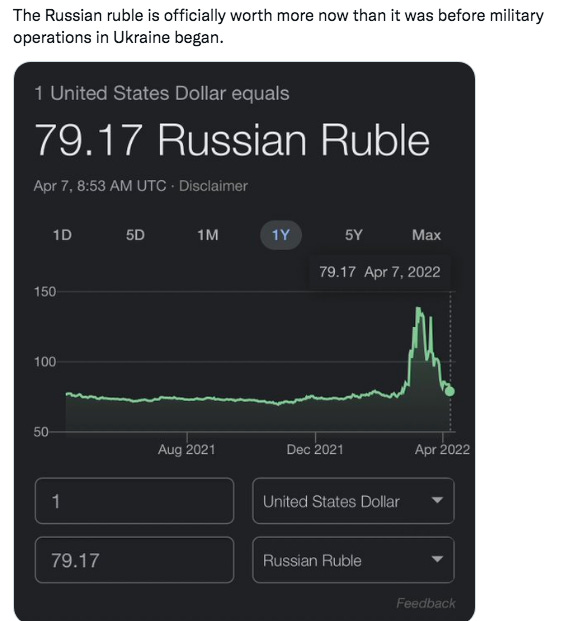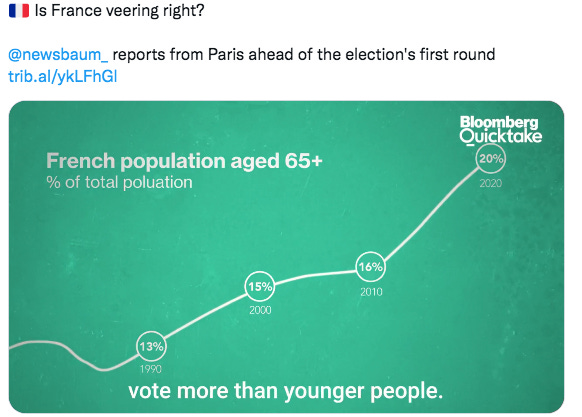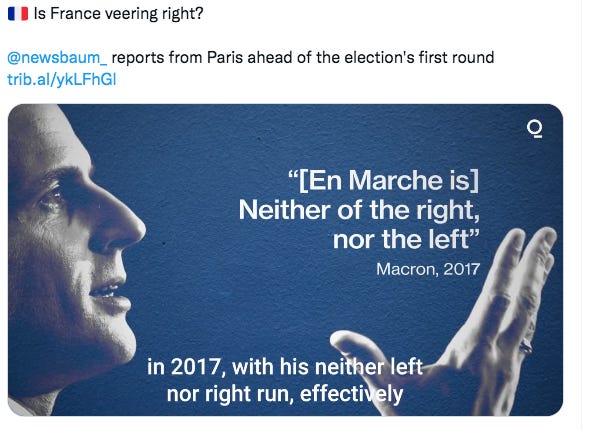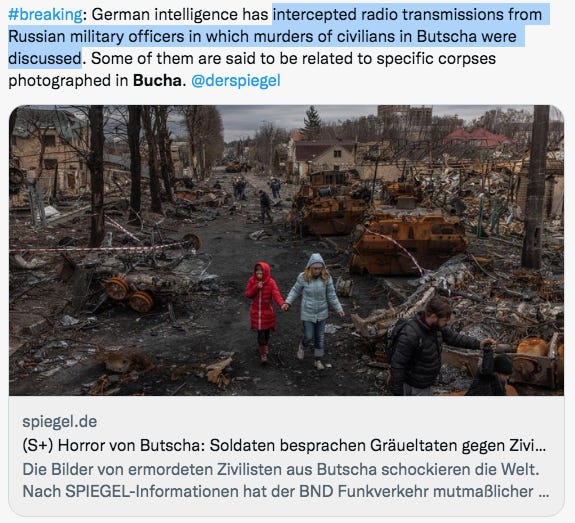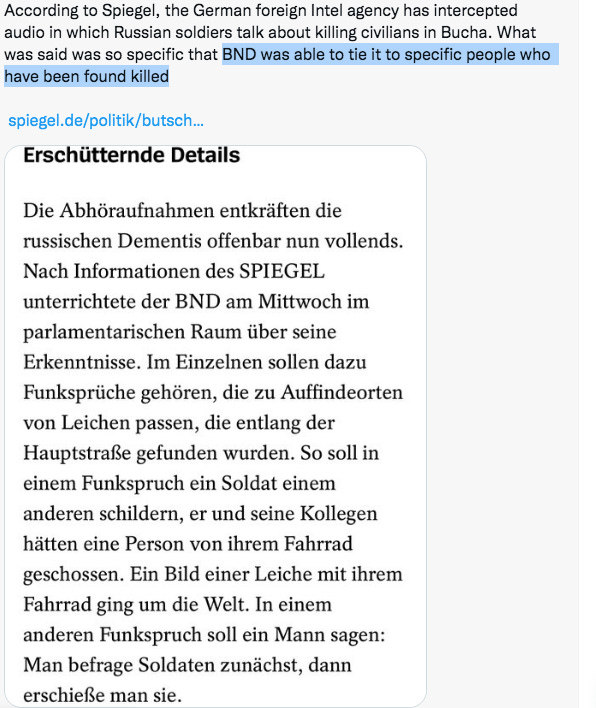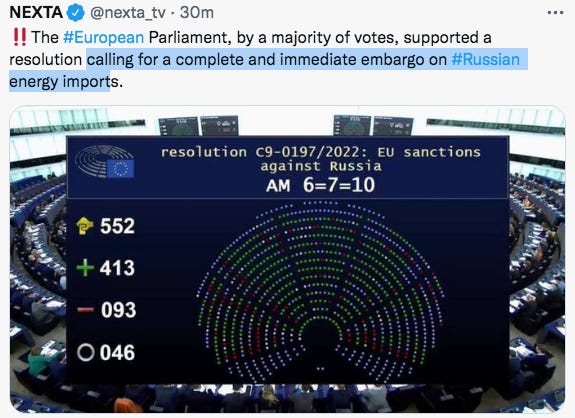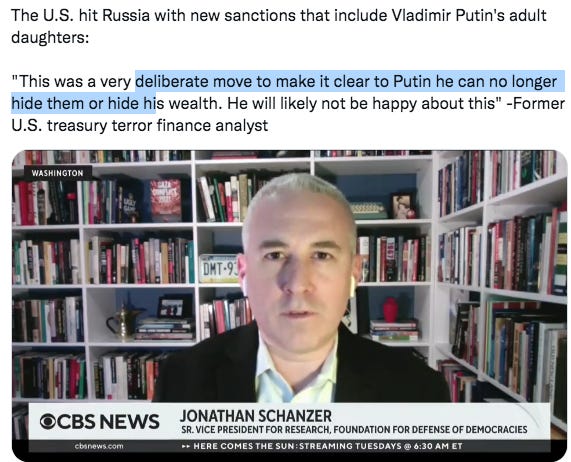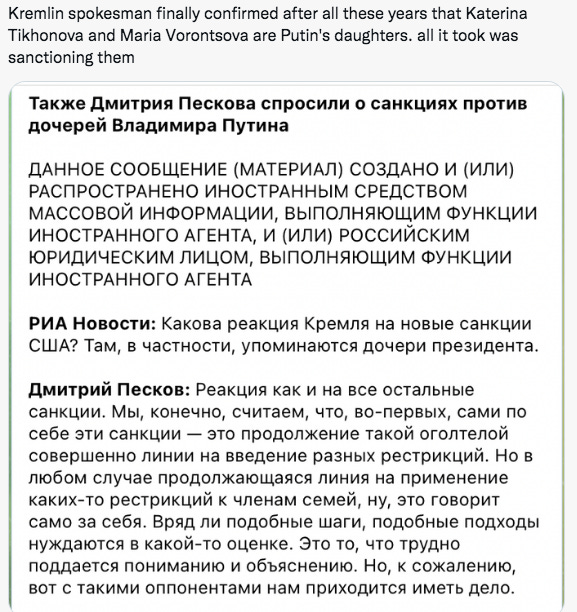(Live Update Russia War) Unending Diplomacy with Russia is losing the Grip, the Toughest Sanction Would Works
Until April 3rd, even U.S. FM Blinken & Chancellor Germany Olaf Scholz shared the idea, or signaling (prospect) several sanctions to Russia maybe lifted depending on the outcome of Russia - Ukraine peace talk in Istanbul (March 29th), amid strategy Coercive Diplomacy since war began February 24th. Even, both negotiators frim Russia and Ukraine declared the open idea about meeting between Zelensky and Putin in Istanbul.
But, after massive footage (atrocities in) Bucha, the idea to lift sanctions is blown in the air. (The timeline-live update war click here)
April 5th, maybe only (between) 3 hours, between 11 am Berlin time - 1 pm Berlin time (/ 12 pm Kyiv time - 2 pm), at least 8 countries {Denmark (15 Russian diplomats); Italy (30 diplomats); Estonia (14 diplomats); Spain (25 diplomats); France (35 diplomats); Romania (10); Slovenia (33) and the latest: Latvia} expelled Russian diplomats. April 6th, newest expelled came from Norway (expelled 3 Russian diplomats). Not as massive as closing air skies for the Russians in February, but this is really huge coercive diplomacy. Total countries expelled Russian diplomats since war began (February 24th) until at least April 6th currently (by) 19 countries, and this number really huge, 400 Russian diplomats expelled, and still counting.
The problem is, if we erase the backchannel and expel the diplomats, who (currently) the Russians still got respect by the West and for purpose coordination amid this war? Russia would normally in this situation use diplomacy as a stall tactic but the Bucha Massacre might have complicated that prospect of cease fire.
There can be no dialogue or any constructive diplomacy between Russia and the West as long as Russia seeks to manipulate the process with obfuscation and proceeds from a twisted truth based on its own propaganda. Just a reminder, the footage currently is Bucha. The world may be watching another atrocities in Mariupol, Kherson, Borodianka, or Chernihiv, maybe starkest.
Sanctions that the West has imposed on Russia have been unprecedented in their speed, scale, and scope. Within just a week of Putin’s attack on Ukraine in February, the United States and its allies remarkably prohibited their people and companies from doing business with the Central Bank of Russia, the largest entity targeted since U.S. sanctions against Japan before Pearl Harbor 1941.
They also levied an array of other penalties, including sanctions on state-owned Russian banks and controls on critical technology exports to Russia. By any measure, the West delivered on the “swift and severe consequences” that U.S. President Joe Biden had threatened before the invasion.
But these sanctions are not yet comprehensive, nor are they imposing enough economic costs to have any hope of changing Russia’s short-term calculus. Just one of Russia’s five biggest banks, VTB, is under full blocking sanctions, which freeze its assets and ban U.S. firms and individuals from transacting with it, and is cut off from the SWIFT interbank messaging service. Outside the financial sector, none of Russia’s biggest state-owned enterprises—such as the oil giant Rosneft, the gas behemoth Gazprom, and the defense-industrial conglomerate Rostec—are under full blocking sanctions. And Russia’s oil and gas sales—the lifeblood of Putin’s economy, accounting for half of the country’s export revenues and roughly 40 percent of its budget—remain largely untouched. Russia still have a budget to killing the Ukrainian.
Another proof sanctions not yet comprehensive. The EU Commission triggering rule of law sanctions against Hungary will deter others from following Orban's anti-democratic path.
But it comes late (very late) to safe democracy in Hungary. Delaying sanctions helped Orban to win rigged elections. He will be in power at least 4 more years, another 4 years staunch relation with Putin. After winning election, via Hungarian Foreign Minister Szijjarto, Orban regime says Hungary is preparing to pay for Russian Gas in Rubles. This is how the sanction not yet comprehensive hit Russia and the ally.
The next after Hungary (election) is even scarier with the West: in the heart of Europe itself, its French Election. The newest polls show Macron only get 51,5%, and Marine Le Pen get 48,5%. Ultra nationalist like Orban, Le Pen, managed to turn the war in Ukraine to his advantage in a win that deepens the EU’s troubles.
Another trick even ease, facilitated by the U.S. Ally itself. India (Quad Indo Pacific member), UAE, Qatar, Turkiye, with full-consideration, helping Russian oligarchs, or at least richer Russian, to have more property, park the Yacht(s), after got chunked from London, New York, Geneva, Monte Carlo, Berlin, Venice, or Ibiza.
There are other subjects where the EU has been helpless in the face of Washington’s decisions on tightening sanctions. Iran for example. But making this argument around Ukraine is just going to prove utterly self-defeating if China is seeking to preserve its relationship with Europe. Even China until today not yet helping very massive like India (on payment scheme), maybe because covid situation in Shanghai, hit a Beijing decision and concentration to put a smooth decision on same painful problem.
Claims that Russia is the world’s most sanctioned country—based on simply counting the number of individual targets—are misleading. Compare the penalties applied to Russia with those enforced on Iran. Every major Iranian bank and state-owned enterprise is under full blocking sanctions. The United States maintains a complete financial and trade embargo on Iran. And Washington has spearheaded a global campaign against Iran’s oil exports, backed with the threat of secondary sanctions—penalties on third parties that transact with Iran. This international effort has devastated Iran’s oil sales.
The Ukrainians, they cheer for us when we liberate them. The generals we've lost have mostly died from being hugged to death. People are just so thankful to see more and more newest weapons from the West. Coal ban (announced by Ursula von der Leyen, and FM Germany Baerbock), four banks (deswifted already), a ban on ports and borders (with exceptions) is not really an adequate sanctions package to the massacres that are being uncovered. A feeble response is just an invitation for more atrocities. It could and should be stronger.
Putin is not giving Ukraine a respite. On the opposite - Putin is ready to make worse atrocities than (in) Bucha. Why should Europe give Putin more time to earn more money from oil and gas? More time to use European ports? More time to use unsanctioned Russian banks in Europe? Time to pull the plug.
Unless the EU is prepared simply to accept that it now has an authoritarian member state who help Putin amid war, it should at long last impose rigorous conditionality on the flows of European money that have long been one of the main founts of Orbán’s power, and next year maybe Le Pen.
For Hungary's example, this means continuing to withhold post-Covid recovery grants and loans, since transparency cannot be guaranteed by a regime that is actually built on the corrupt use of EU money. It also means finally triggering the rule-of-law conditionality mechanism that could hold back significant chunks of funding from the EU’s regular budget. (And not being fooled into giving Hungary lots of money for Ukrainian refugees who have in fact already moved on to other countries.)
But here’s the problem. Faced with the latest evidence of the barbaric behaviour of Russian troops in Bucha, Europe needs to step up its sanctions against Putin. When Orbán returned from back-to-back summits of Nato and the EU in Brussels last month, his government sent an email to all Hungarians who had signed up for a Covid vaccine saying that “proposals were put on the agenda against which Hungary’s interests had to be protected”. His government would never allow weapons supplies to go through Hungary to Ukraine, nor sanctions to be imposed on 85% of Hungary’s gas and 64% of its oil that comes from Russia. In response to the Bucha atrocities, EU leaders such as French president Emmanuel Macron are now calling for more sanctions, including on Russian oil. Self-styled “realists” may argue that Brussels has to stay soft on Hungary in order to keep Orbán on board for a common front over Ukraine.
The most important strategic victories Putin needs to win to reverse his fortunes are first in the Donbas and then in Paris, where the victory of the traditionally pro-Moscow Marine Le Pen would let him snatch a chance to redraw Europe’s security order in the jaws of defeat.
Marine Le Pen’s victory would see France led by a second super-Orban seeking similiar equivalence and equidistance to the Kremlin and a slow disintegration of the European Union’s rules based order into a lighter more authoritarian friendly framework. A Putin-friendly order.
The contest for Europe has not just one frontline south of Izyum. Another just closed through Hungarian politics, where Putin is happy, as a front opens in France. Others will open in US politics with the looming midterms and chances of a new Trump or “America First” Presidency.
Europe should now get tough on both the Russian enemy without and the Hungarian enemy within. But can it and will it do both at once? Here is another dilemma this dark, depressing weekend has presented to a deeply shaken Europe. Will be more shaken if Macron, only the West leader to unending diplomacy by phone-call with Putin until 42x times since January 2022, loses the French Election by Le Pen, the Putin ally in France. Diplomacy is dead as far as War Criminal Putin is concerned. Macron can chatter away but nobody parlayed with Hitler after war started.




